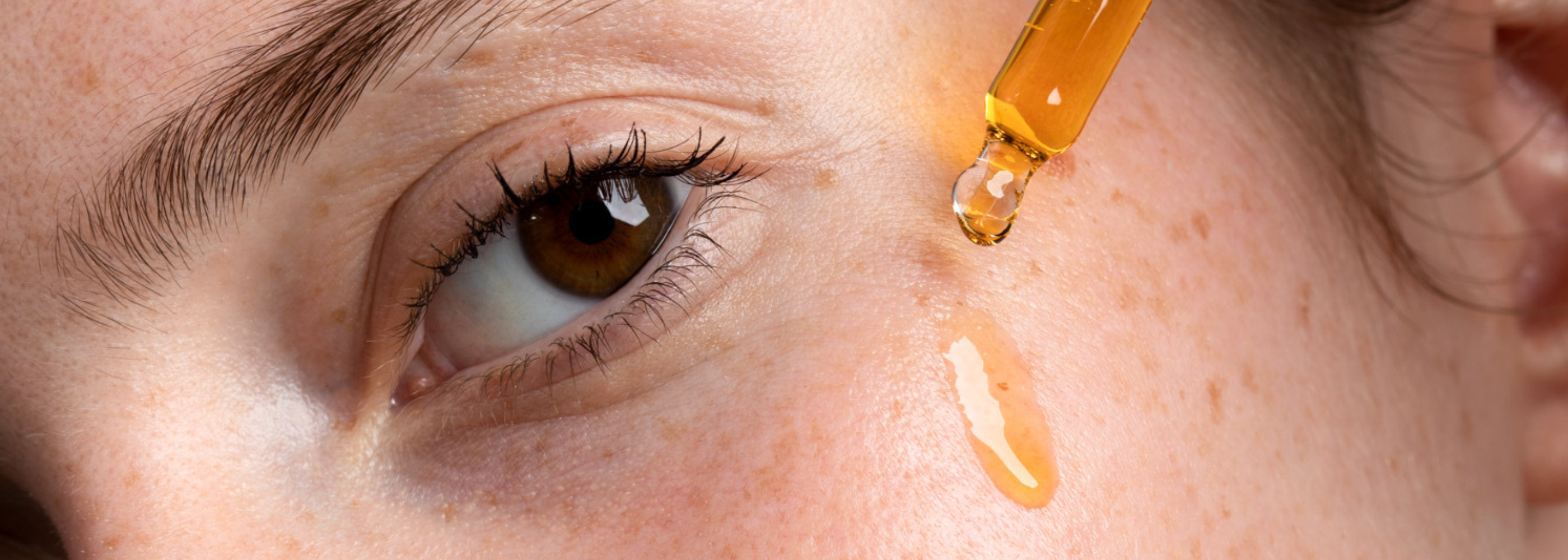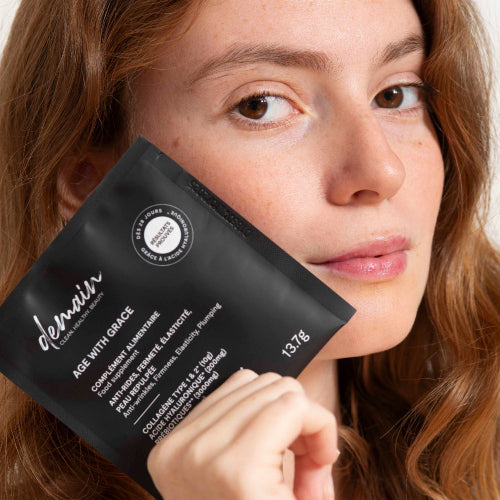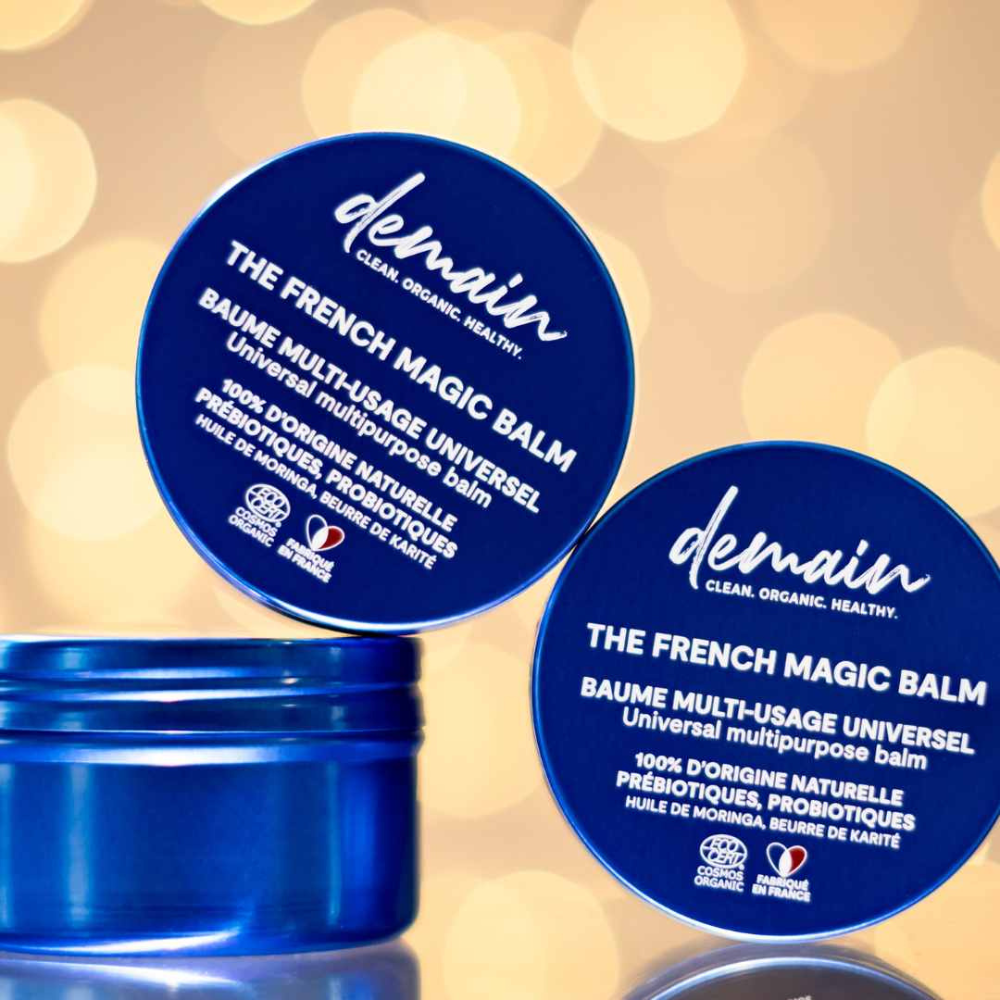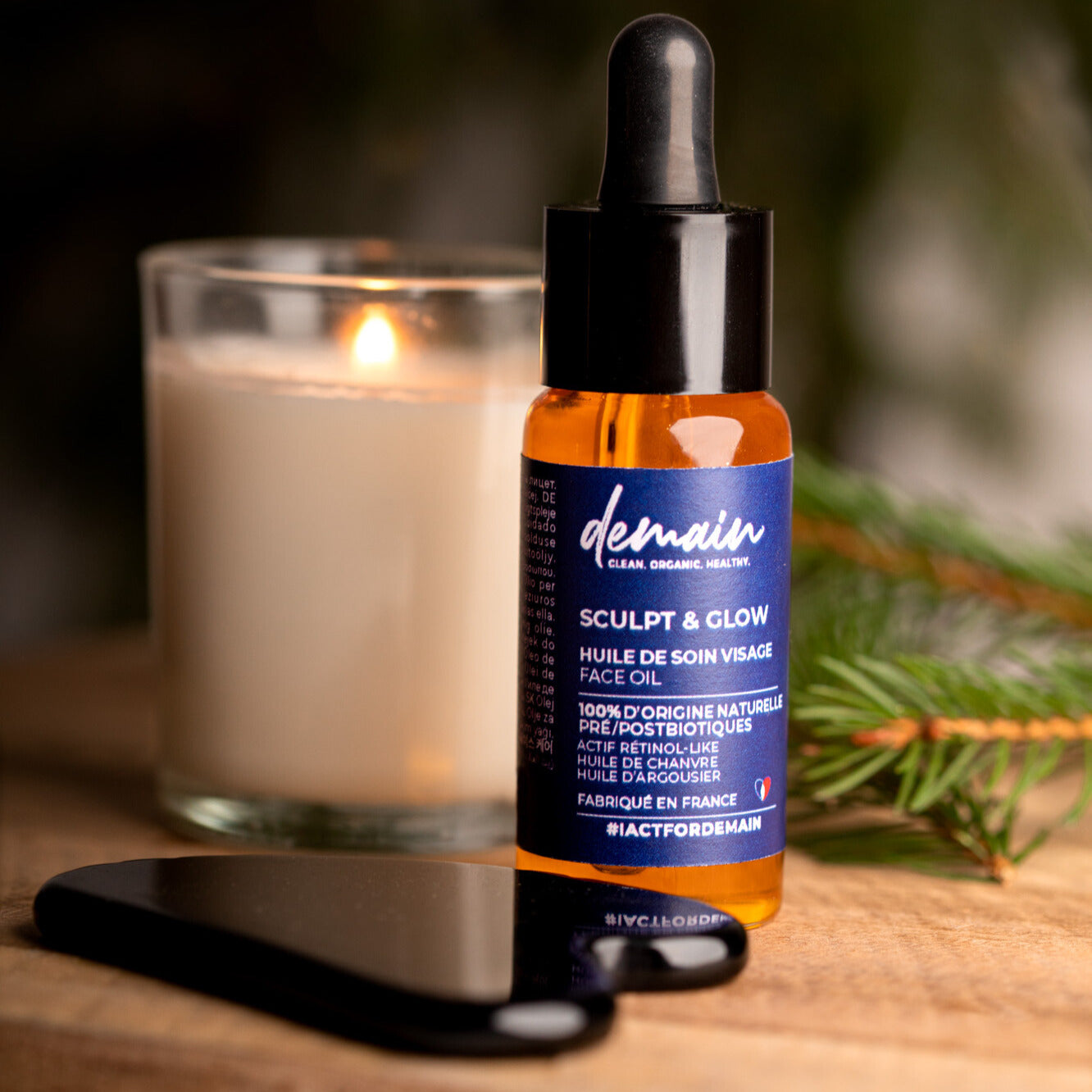Winter is approaching, and with it, the need to protect and nourish your skin from the cold. Discover how to adapt your skincare routine to strengthen the skin barrier and preserve its radiance. From tips for gentle makeup removal to secrets for a radiant complexion, we share our best advice. Remember, a well-hydrated face starts with choosing the best moisturizer. Step into a new season in style.
Understanding the impact of winter on the skin
The winter cold affects the skin in various ways. Low temperatures and wind dry out the skin, making it more fragile. The constant changes between the heated indoors and the cold outdoors accentuate this dryness.
The skin produces less sebum, which reduces its natural protection. This can lead to redness, irritation, and discomfort. Lips and hands are particularly vulnerable, often prone to chapping.
To counteract these effects, it is essential to boost hydration and favor treatments rich in fatty acids and vegetable oils . Creams based on shea butter or hyaluronic acid can help maintain optimal hydration.
Another aspect to consider is cell renewal. In winter, the skin needs a gentle scrub to remove dead cells without damaging it. Opt for a moisturizing scrub made with sugar or natural ingredients.
Adapting the care routine with the arrival of the cold
Choosing the Right Cleanser for Your Skin
To choose the right cleanser for winter, it's essential to consider your skin type and specific needs related to cold temperatures.
For dry skin, choose a moisturizing cleanser rich in plant oils like sweet almond or jojoba oil. These ingredients help restore the skin's protective hydrolipidic film, which is often damaged by the cold.
Oily skin, on the other hand, will benefit from a purifying cleansing gel containing gentle active ingredients such as salicylic acid, which regulate sebum production without damaging the skin.
For sensitive skin, opt for fragrance- and alcohol-free formulas, such as light foams or silky oils. These cleansers remove impurities while respecting skin's balance.
Finally, combination skin will find what it's looking for with balancing cleansers, capable of purifying the T-zone while hydrating the drier areas of the face.
Importance of exfoliation in winter
Exfoliating in winter is crucial for several reasons. First, it helps remove dead skin cells that accumulate on the surface. These cells dull the complexion and prevent moisturizers from effectively penetrating.
Next, exfoliation stimulates blood circulation, which can improve your skin's natural radiance. To avoid irritating skin that's already sensitive to the cold, opt for gentle exfoliants, such as those containing sugar or fruit acids.
Here are some tips for successful exfoliation:
- Use a scrub with fine grains or mild acids.
- Limit exfoliation to once or twice a week to avoid damaging the skin barrier.
- Apply a rich moisturizer after each exfoliation to maximize hydration.
This way, you will keep your skin glowing and healthy throughout the winter period.
Strengthening the skin barrier: a key step
To strengthen the skin barrier, it's essential to maintain regular hydration. Nourishing skincare products are particularly recommended. Choose creams rich in ceramides, fatty acids, and cholesterol, which mimic the skin's natural lipids.
Also, be sure to incorporate specific serums into your skincare routine. For example, a centella serum can soothe the skin and boost its protection. Serums containing vitamin C are also beneficial for their antioxidant effect, protecting the skin from free radicals.
For extremities like hands and lips, which are often more exposed, use balms rich in shea butter or argan oil. These ingredients provide an additional protective barrier against external aggressions.
If you want to know more, check out our winter skincare routine hydration & protection .
How to take care of your face in winter
Protect your face from redness and irritation
To protect your face from redness and irritation in winter, start by choosing the right skincare products. Use creams rich in ceramides and essential fatty acids to strengthen the skin barrier. Apply them generously, especially before going outside.
Also, choose gentle cleansers that are alcohol- and fragrance-free. These formulas are gentle on sensitive skin and prevent further irritation.
Adopt a skincare routine that includes a soothing serum made with centella asiatica or green tea. These natural ingredients have anti-inflammatory properties and can calm redness.
Finally, avoid hot baths and instead use lukewarm water to wash your face. High temperatures can worsen redness and dry out the skin.
How to have a beautiful complexion despite the cold
To achieve a radiant complexion in winter, focus on hydrating and nourishing your skin. Use creams rich in ceramides and fatty acids to strengthen the skin barrier. This helps protect the skin from external aggressors.
Also consider incorporating hydrating masks into your routine. Apply them once or twice a week to keep your skin soft and radiant. Don't forget to use a vitamin C serum for its antioxidant and radiance-boosting effects.
In addition to external care, it's essential to nourish your skin from the inside out. Consume foods rich in omega-3s, such as salmon and walnuts, to improve skin texture and hydration. Also, drink plenty of water to maintain proper hydration.
Finally, don't underestimate the importance of sleep. Adequate rest allows your skin to regenerate and maintain its natural glow.
The best face moisturizer for winter
To choose the best winter facial moisturizer, look for ones that contain nourishing and protective ingredients , such as ceramides, essential fatty acids, and cholesterol.
Here are some criteria to consider:
- Texture : Opt for a rich, creamy texture that ensures long-lasting hydration.
- Ingredients : Look for creams containing hyaluronic acid, shea butter, or argan oil for deep hydration.
- Protection : A cream with antioxidants like vitamin C can also protect the skin from free radicals.
For optimal results, apply your cream immediately after cleansing your face, ideally on skin that is still slightly damp. This helps seal in moisture and maximize the cream's benefits.
Body care: don't neglect other parts of the skin
Intense hydration: the secret to radiant skin
For intense hydration, choose products rich in nutrients. Creams containing shea butter, jojoba oil, or hyaluronic acid are particularly effective. They help retain moisture and protect the skin from external aggressors.
You may also be interested in our article on HYALURONIC ACID .
Also consider using vegetable oils, such as sweet almond or argan oil. They absorb quickly and leave the skin soft and without a greasy film.
For maximum effectiveness, apply these products after showering, while skin is still damp. This helps seal in moisture.
Don't forget hydrating masks. Used once or twice a week, they provide the extra moisture needed in winter.
Finally, drink enough water throughout the day. Good internal hydration is essential for glowing, healthy skin.
Tips to avoid crocodile skin
To prevent crocodile skin, it's essential to adopt a proper skincare routine. After each shower, apply a nutrient-rich moisturizer, such as shea butter or jojoba oil. These ingredients help maintain moisture and protect the skin from external aggressors.
Also, consider choosing gentle, sulfate-free shower gels to avoid drying out your skin. Use lukewarm water instead of hot to minimize the drying effect of water.
Here are some additional tips:
- Hydrate yourself from the inside out by drinking enough water every day.
- Use vegetable oils like sweet almond oil after showering.
- Wear clothing made from natural materials to avoid irritation.
By following these tips, you can keep your skin soft and supple throughout the winter.
Nourishing your skin from within: the importance of diet and hydration
To maintain glowing and hydrated skin during winter, you need to incorporate nutrient-dense foods into your diet. Colorful fruits and vegetables, such as carrots, spinach, and oranges, are excellent sources of vitamins A, C, and E, which act as natural antioxidants. They help protect skin from damage caused by UV rays and free radicals.
Essential fatty acids, found in oily fish, walnuts, and flaxseeds, are also crucial. They strengthen the skin's lipid barrier, making it more resistant to external aggressors.
Also drink herbal and green teas for a boost of water and antioxidants. Avoid dehydrating beverages like coffee and alcohol. Proper hydration is essential to maintain skin suppleness and softness during winter.
Mistakes to avoid when protecting your skin from the cold
One common mistake is using products that are too abrasive. In winter, skin is already weakened by the cold. Choose gentle cleansers and non-aggressive exfoliants. Avoid ingredients like alcohol or artificial fragrances, which can irritate the skin.
Avoid hot baths. While pleasant, they can dry out your skin. Instead, opt for short, lukewarm showers. Remember to apply moisturizer immediately afterward to seal in the moisture.
Don't neglect your lips and eye area, which are particularly sensitive. Apply balms, like our Time To Detox Makeup Remover Balm (also available in a mini size for on-the-go use!), and creams specifically for these areas of the face.
Finally, don't go out without sunscreen. Even in winter, UV rays can damage your skin. Choose a moisturizer with the right SPF.











